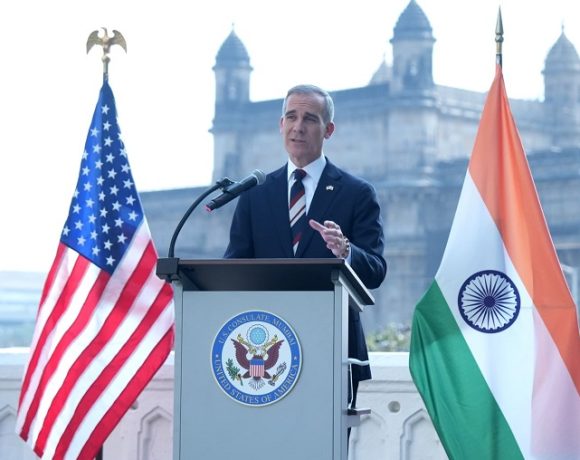
Pakistan PM Warns of “Existential Threat” Over Indus Water Move
Pakistan’s Prime Minister Shehbaz Sharif has sounded a dire warning as India stands firm on its recent suspension of key provisions of the Indus Waters Treaty. Calling the situation a matter of national urgency, Sharif announced a series of domestic measures to counter what he described as mounting pressure on Pakistan’s water security.
The Prime Minister stated that Pakistan is taking steps to build water resilience by fast-tracking several key infrastructure projects, including the ambitious Diamer-Bhasha Dam. He declared that the country would move forward with or without foreign funding and emphasized the need to complete long-pending reservoirs and water storage systems.
Indus Water
India’s decision to unilaterally suspend provisions of the Indus Waters Treaty—specifically those related to data sharing and flood forecasting—has caused major concern in Islamabad. The treaty, signed in 1960, governs water sharing from six rivers of the Indus basin. Under the agreement, India controls the eastern rivers (Ravi, Beas, Sutlej), while Pakistan has rights over the western rivers (Indus, Jhelum, Chenab). Nearly 80% of Pakistan’s water needs are met by these western rivers, making them a lifeline for the country’s agriculture and drinking supply.
By halting technical data flow and restricting water discharge during key seasonal periods, India has amplified Pakistan’s vulnerability, particularly ahead of the monsoon. This move, seen as retaliatory following escalating cross-border tensions, has undermined one of the few surviving pillars of Indo-Pak cooperation.
Pakistan Threat
Former Foreign Minister Bilawal Bhutto-Zardari raised the stakes further by declaring, “Any attempt by India to block Pakistan’s water supply would be seen as an existential threat, leaving Pakistan with no option but war.” He later cautioned that if India refuses to return to fair terms of engagement, Pakistan may unilaterally claim the entire Indus system as a countermeasure.
This hardening of rhetoric underscores the high-stakes nature of water diplomacy between the two nuclear-armed neighbors. What was once a matter of shared technical cooperation has now become a battleground of sovereignty and national identity.
Water Security
Since India’s announcement in April to suspend the treaty obligations, diplomatic channels have grown cold. The Permanent Indus Commission, which typically manages disputes and facilitates cooperation, has been rendered inactive. In the absence of dialogue, both nations have moved toward unilateral posturing—India enforcing hydrological controls, and Pakistan rushing to expand its infrastructure to mitigate future shortfalls.
Pakistan’s renewed push for water security is not just a response to India’s decision but also an admission of its own infrastructural gaps. By aggressively investing in new dams and reservoirs, the Sharif government hopes to wean the country off dependency on upstream water flows. However, with timelines uncertain and funding in flux, it remains to be seen whether these measures can shield Pakistan from the looming water crisis.
The rising tensions over the Indus Waters Treaty represent more than a diplomatic dispute. They reflect a fundamental shift in how water is weaponized in geopolitics—turning rivers into tools of pressure and survival in a region already fraught with volatility.


















